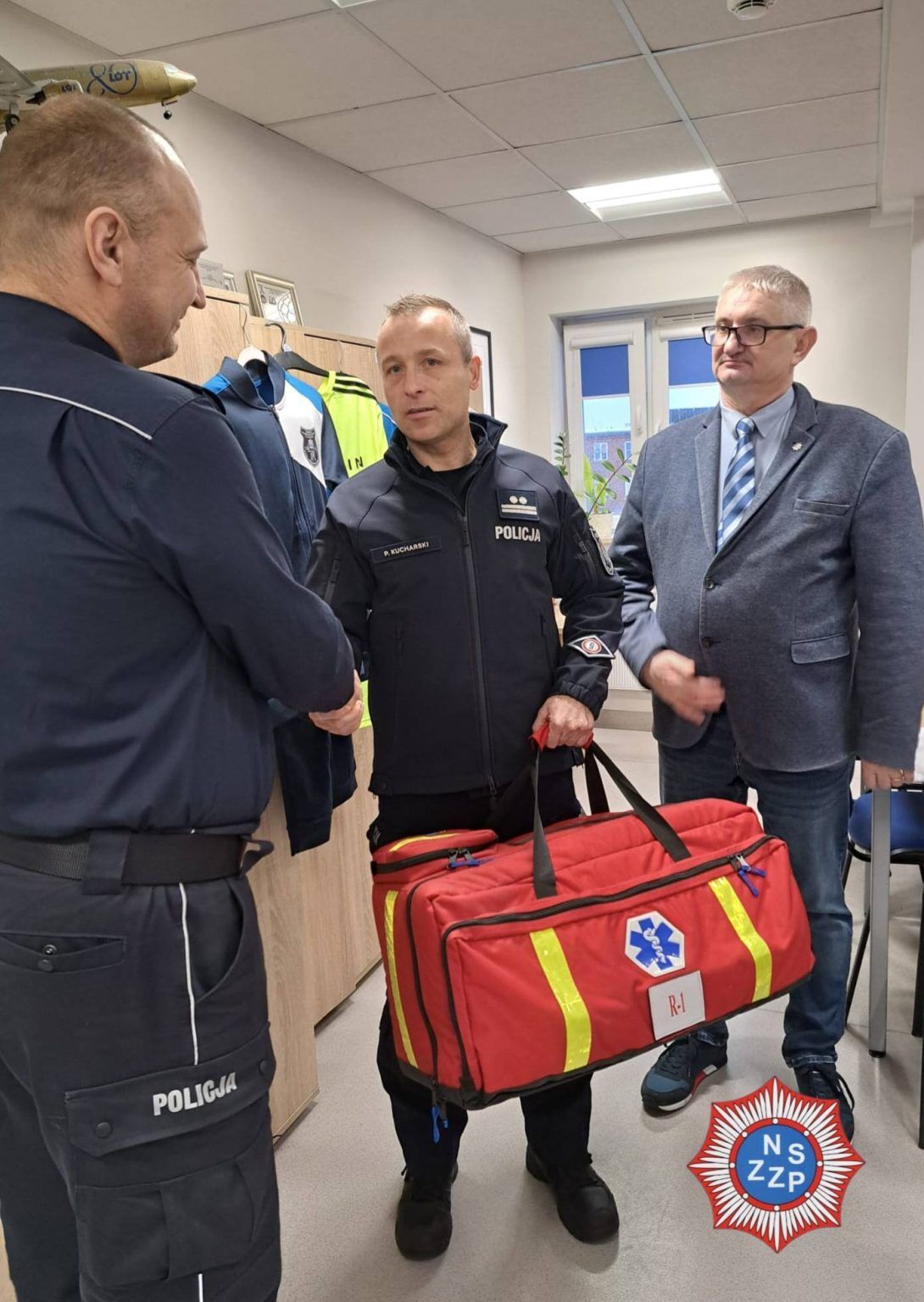
Think you’re just visiting another Asian metropolis? Think again! Singapore might look like a futuristic wonderland with its gleaming skyscrapers and robot trees, but it’s also a place where dropping a candy wrapper could cost you more than your hotel room. The locals joke that Singapore stands for “Sure Got Notice” because there’s always a sign telling you what not to do.
Before packing your bags for this pristine paradise, here are 10 rules that will keep you from turning your vacation into an unexpected contribution to Singapore’s national treasury.
 Photo- VisitSingapore (Facebook)
Photo- VisitSingapore (Facebook)1. No Smoking Zone
Smoking restrictions in Singapore extend to nearly all public areas. Parks, shopping malls, bus stops, and restaurants prohibit smoking entirely. Visitors must locate designated smoking areas marked by clear signage before lighting up.
The government imposes substantial fines on anyone caught smoking in prohibited zones. Enforcement officers regularly patrol public spaces, so travellers should remain vigilant about where they can legally smoke.
The ban includes e-cigarettes and vaping devices, which are completely prohibited in the country.
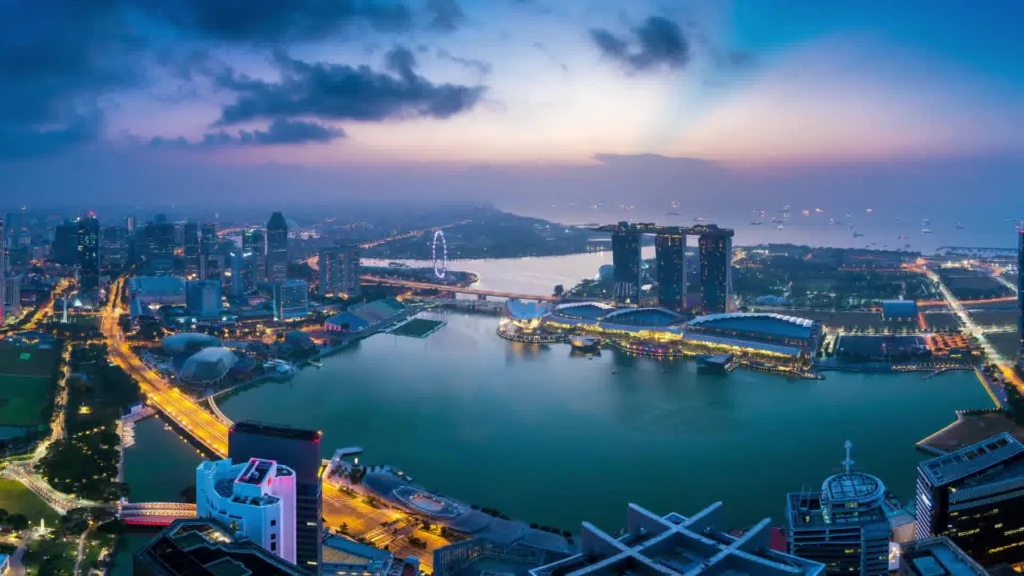 Photo- VisitSingapore (Facebook)
Photo- VisitSingapore (Facebook)2. Chewing Gum Ban
Singapore’s chewing gum prohibition remains one of its most well-known regulations. Importing, selling, or bringing chewing gum into the country violates the law unless prescribed by a doctor.
This ban originated to prevent vandalism of public property and maintenance issues with MRT train doors.
Customs officials routinely check for gum during entry screenings. Only therapeutic dental gum receives an exemption, and even this requires a proper medical prescription.
Visitors should completely avoid bringing any gum products to avoid complications at immigration.
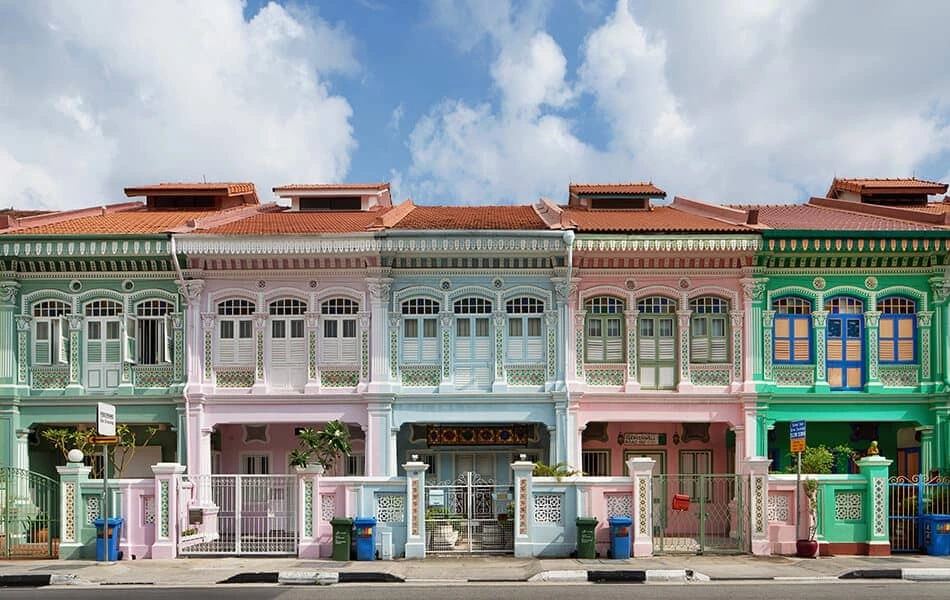 Photo- VisitSingapore (Facebook)
Photo- VisitSingapore (Facebook)3. Spotless Streets
Singapore maintains its immaculate appearance through strict anti-littering enforcement. Even discarding small items like cigarette butts or candy wrappers attracts significant penalties.
First-time offenders face fines up to $2,000, while repeat offenders may receive community service orders. Those assigned to corrective work must wear bright vests publicly identifying their offence while cleaning streets.
Trash bins appear throughout the city, making proper disposal convenient. This commitment to cleanliness represents a core value in Singaporean society.
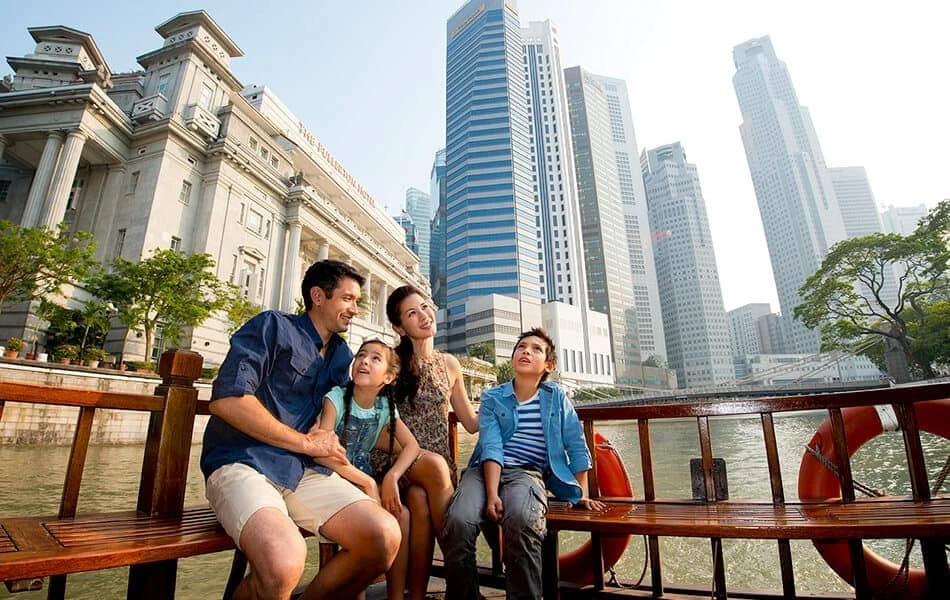 Photo- VisitSingapore (Facebook)
Photo- VisitSingapore (Facebook)4. Drug Laws
Singapore enforces one of the world’s strictest anti-drug legislations. The death penalty applies to trafficking certain quantities of illegal substances. Even possessing small amounts triggers severe consequences, including lengthy prison sentences.
Authorities can prosecute individuals with drug traces in their bloodstream, regardless of where the consumption occurred.
Prescription medications should accompany appropriate documentation from doctors. The government conducts random drug tests at entry points, demonstrating its zero-tolerance approach to narcotics of any kind.
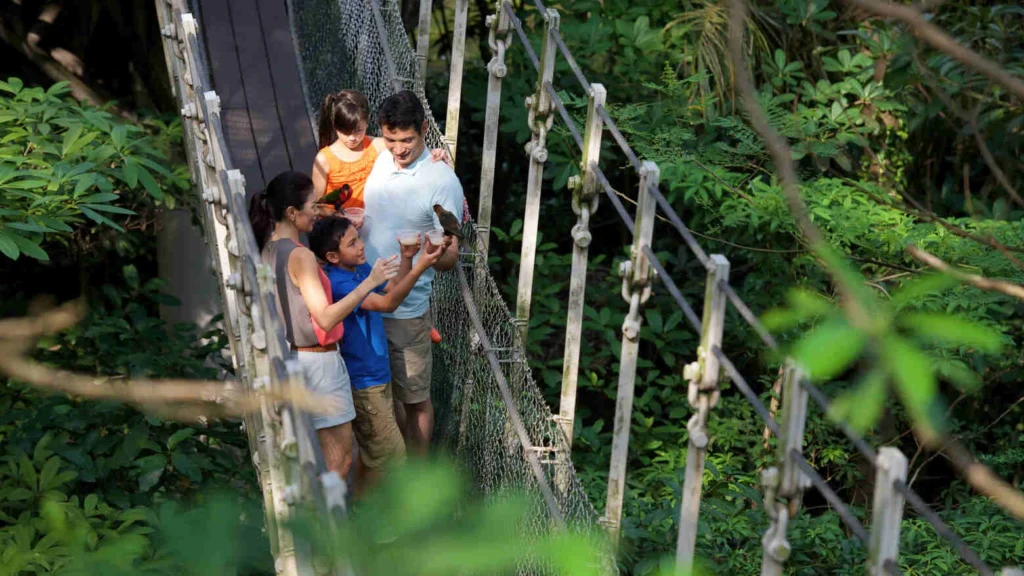 Photo- VisitSingapore
Photo- VisitSingapore5. Queuing Culture
Orderly queuing represents a fundamental aspect of Singaporean social behaviour. Whether waiting for taxis, food at hawker centres, or public transportation, everyone must line up properly. Queue-jumping receives immediate social disapproval and potentially public confrontation.
During busy periods, attendants often manage queues at popular attractions and transportation hubs. This systematic approach reflects Singapore’s broader emphasis on social order and mutual respect in public spaces.
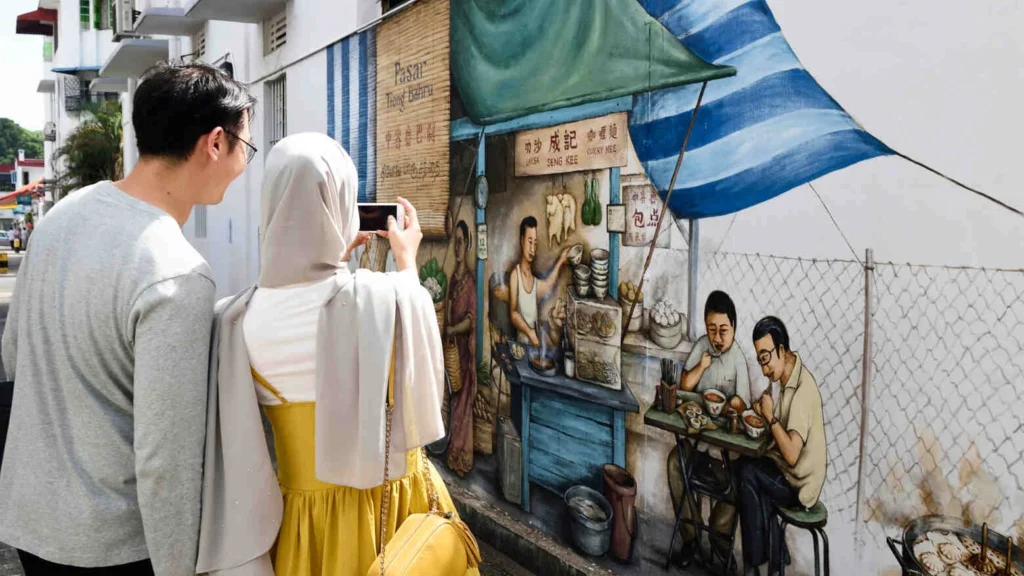 Photo- VisitSingapore
Photo- VisitSingapore6. Public Transport Etiquette
Singapore’s Mass Rapid Transit (MRT) system prohibits eating and drinking throughout stations and trains. This ban extends to all beverages, including water. Violation results in fines up to $500. Authorities employ surveillance cameras and plain-clothes officers to enforce these regulations.
The rule helps maintain the exceptional cleanliness of public transportation. Passengers must finish all food and drinks before entering the station gates or boarding buses, regardless of journey length or time of day.
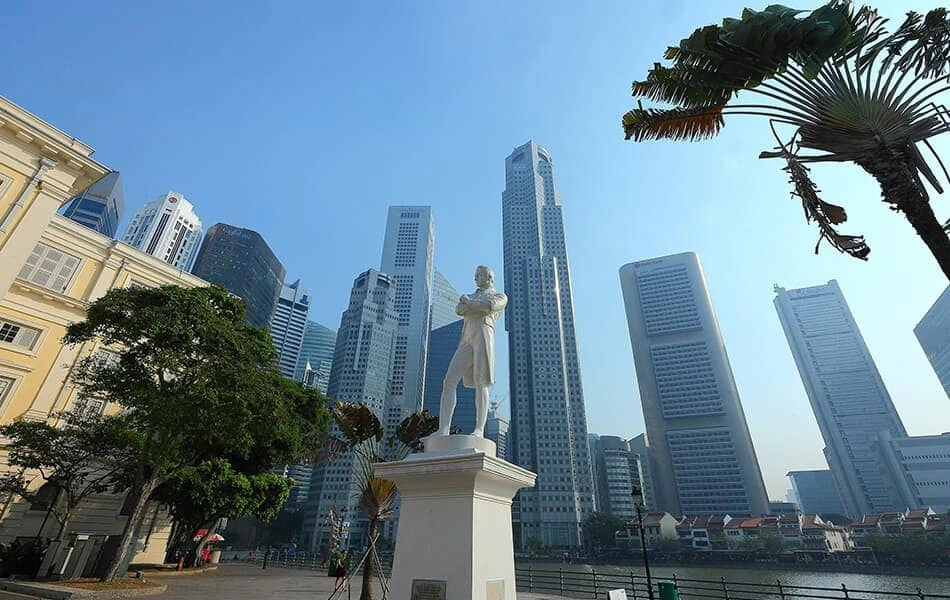 Photo- VisitSingapore
Photo- VisitSingapore7. Road Safety
Jaywalking laws receive active enforcement in Singapore. Pedestrians must use designated crossings, even on seemingly empty streets. Police officers issue tickets to violators on the spot. Fines increase for repeat offenders, who may receive a court summons.
The extensive network of pedestrian bridges, underpasses, and controlled crossings covers most areas. Traffic signals feature countdown timers to indicate remaining crossing time. These measures contribute to Singapore’s low pedestrian accident rate despite dense urban traffic.
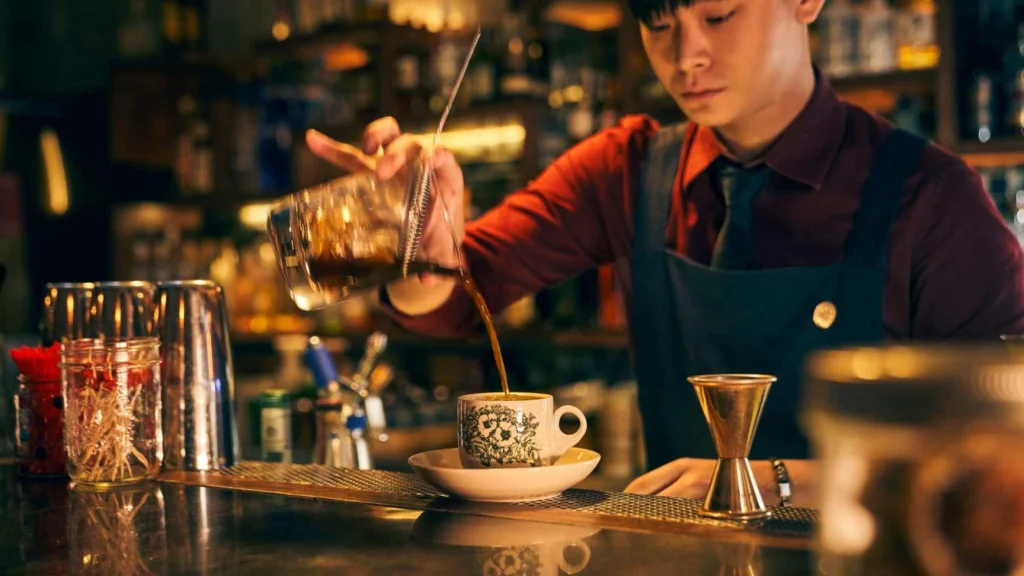 Photo- VisitSingapore
Photo- VisitSingapore8. Tipping Customs
Unlike many tourist destinations, Singapore does not practice tipping. Most establishments include a 10% service charge in bills, eliminating the need for additional gratuities. Taxi drivers, delivery workers, and service staff do not expect tips.
Attempting to leave extra money might cause confusion or occasionally offence. This system provides transparency in pricing for visitors. Restaurants mark the service charge on menus and receipts, removing guesswork from final costs.
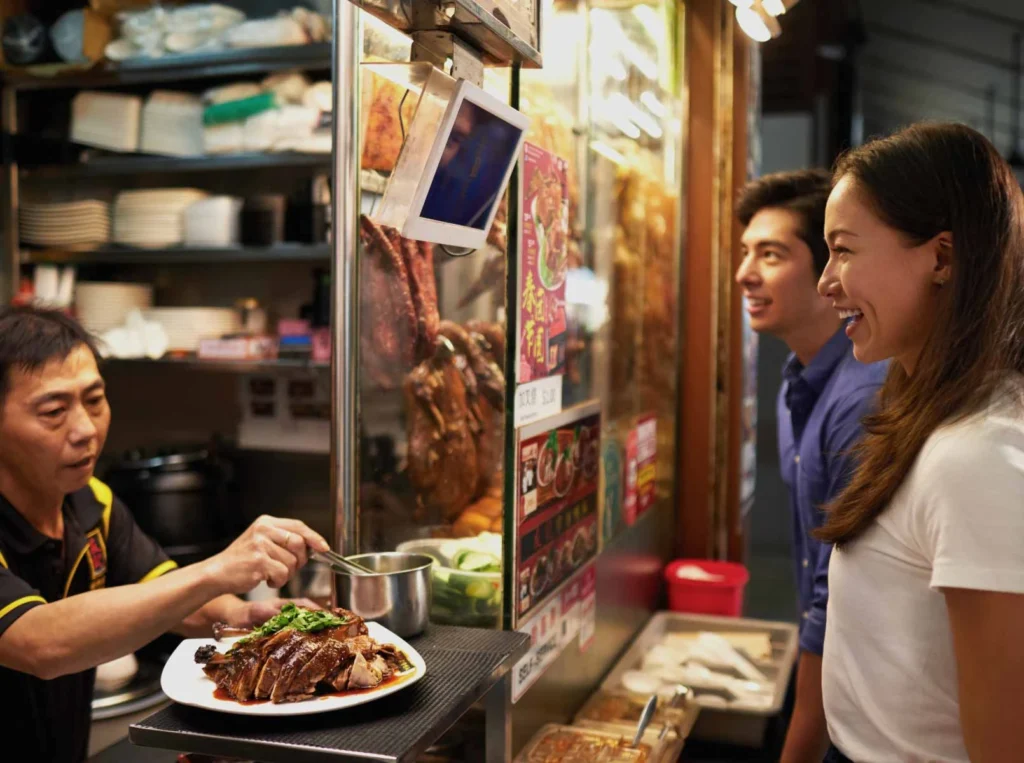 Photo- VisitSingapore
Photo- VisitSingapore9. Public Displays of Affection
While Singapore embraces modernity, traditional values influence acceptable public behaviour. Holding hands receives general acceptance, but intimate kissing or excessive physical contact attracts disapproval. More conservative areas and older Singaporeans particularly object to demonstrative affection.
Young locals follow these norms despite global influences. Foreign couples should exercise awareness of their surroundings and local sensibilities. This guideline reflects Singapore’s unique blend of contemporary lifestyle and traditional Asian values.
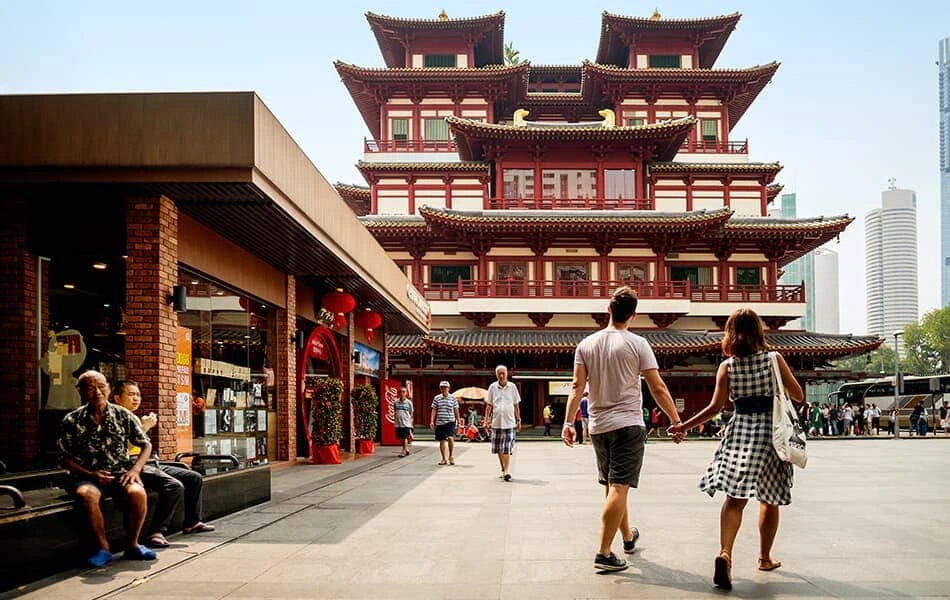 Photo- VisitSingapore
Photo- VisitSingapore10. Religious Respect
Singapore’s religious diversity demands appropriate visitor conduct at places of worship. Mosques, temples, and churches require modest dress covering shoulders and knees. Many sites provide sarongs or coverings for underdressed visitors. Shoes must be removed before entering certain sacred spaces. Photography restrictions apply in specific areas.
Visitors should observe silence and follow posted guidelines at each location. This respectful approach acknowledges Singapore’s multicultural heritage and the importance of religious harmony in the nation.
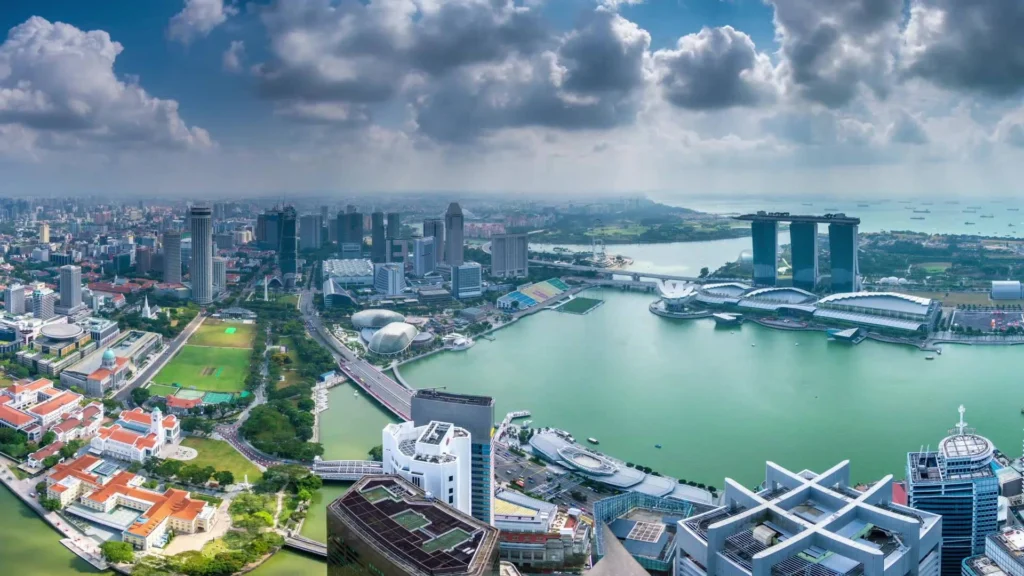 Photo- VisitSingapore (Facebook)
Photo- VisitSingapore (Facebook)Bottom Line
Singapore’s rules might seem stricter than your average vacation spot, but they’re why you can enjoy spotless streets, efficient services, and that famous Singaporean safety.
Think of it this way: you wouldn’t want to explain to folks back home how you spent your souvenir budget on a littering fine! So keep your gum at home, your cigarettes in designated areas, and your urge to jaywalk under control.
Follow these 10 commandments of Singapore travel, and your only complaint will be that your Instagram photos look too perfect to be real. Remember, in Singapore, they don’t just say “have a nice day” – they make sure you do!
Stay tuned with us. Further, follow us on social media for the latest updates.
Join us on Telegram Group for the Latest Aviation Updates. Subsequently, follow us on Google News
Singapore Changi Named Best Airport in the World, No.6 Will Surprise You
The post Top 10 Must-Know Rules Before You Travel to Singapore appeared first on Aviation A2Z.





